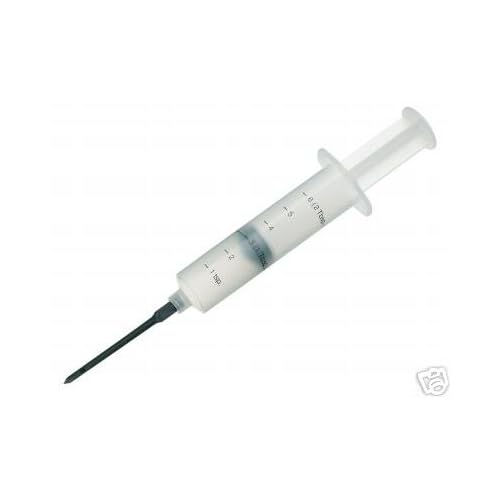menschmaschine
Well-Known Member
It's been a while since I naturally carbed a batch and I don't see doing it anytime soon. Can anyone tell me or point me in the right direction?...
How much water is displaced per "unit" of corn sugar? For instance, if you poured 1 oz. (by weight) of corn sugar into 1 cup of water, how much total solution would you have? I prefer metric measurements, but old timey Imperial measurements are fine too.
What I'm thinking is to calculate a quantity of corn sugar in a quantity of water and using something like this to inject a number of ml's of this sugar solution into bottles for limited bottling of a batch. So, if I had a batch of beer that I was kegging, but wanted to naturally carb a few bottles, I could use something like what's in the photo below instead of carb tabs. I want to be as precise as possible so as not to over or under-carb.

How much water is displaced per "unit" of corn sugar? For instance, if you poured 1 oz. (by weight) of corn sugar into 1 cup of water, how much total solution would you have? I prefer metric measurements, but old timey Imperial measurements are fine too.
What I'm thinking is to calculate a quantity of corn sugar in a quantity of water and using something like this to inject a number of ml's of this sugar solution into bottles for limited bottling of a batch. So, if I had a batch of beer that I was kegging, but wanted to naturally carb a few bottles, I could use something like what's in the photo below instead of carb tabs. I want to be as precise as possible so as not to over or under-carb.





